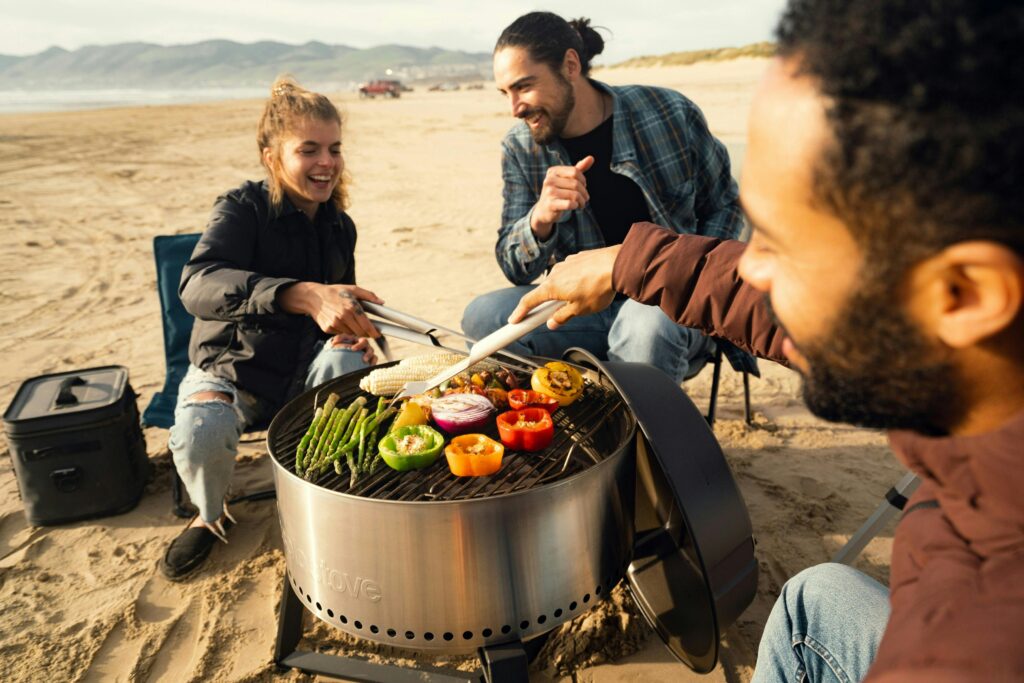
Grilling season is officially here, bringing with it the irresistible aroma of smoky grill after a long day soaking up summer. Grilling is actually one of my very favorite healthy methods of cooking because it is not only quick and easy, but pulls out the bright and natural flavors of the food. Still, there are very real concerns about its potential health risks, particularly its link to cancer.
Today I want to dig into what those risks are and simple ways you protect you and your family this summer without sacrificing flavor or enjoyment.
Understanding the Risks
When meats like beef, pork, poultry, and even fish are grilled at high temperatures, two main types of chemicals can form:
- Heterocyclic Amines (HCAs): These are formed when amino acids, sugars, and creatine (a substance found in muscle) react at high temperatures.
- Polycyclic Aromatic Hydrocarbons (PAHs): PAHs are created when fat and juices from meat drip onto hot coals or other surfaces, causing flames and smoke. These can adhere to the surface of the meat.
Both HCAs and PAHs have been shown in studies to be carcinogenic, meaning they have the potential to cause cancer in humans. However, the degree of risk depends on several factors, including the type of meat, cooking temperature, and cooking method. Although I desperately want want to give you an exact amount of reduction, there are many different studies that have drawn different conclusions. To give you a range, implementing some of the strategies below can decrease the risk by 70%-99%.
Tips for Safer Grilling
- Choose Leaner Cuts: Trim excess fat from meats before grilling to reduce dripping and flare-ups, which can decrease the formation of PAHs.
- Marinate Before Grilling: Marinating meats for at least 30 minutes before grilling can help reduce the formation of HCAs. Ingredients like vinegar, lemon juice, and herbs contain antioxidants that can mitigate the carcinogenic effects.
- Avoid Charring: Cook meats at lower temperatures and avoid charring or burning them.
- Use Foil or Cedar Planks: Cooking fish and vegetables on foil or cedar planks can prevent direct exposure to flames and reduce the formation of harmful compounds.
- Clean the Grill: Regularly clean your grill to remove built-up grease and residue, which can contribute to PAH formation.
- Diversify Your Menu: Balance your grill menu with a variety of foods, including vegetables and fruits. Plant-based foods do not form HCAs or PAHs when grilled.
What to do with this information?
Although the carcinogenic effect of grilling is real, the risk can be severely mitigated by choosing leaner cuts, marinating in citrus and balancing meats out with anti-oxidant rich plants. Most importantly, it is truly the frequency that is most important. Meaning, please don’t stress over that time you kept the meat on for too long or that wonderful neighboor that always hosts the best 4th of July parties but thinks that anything not charred is raw. As with everything, it’s what you do consistently so use these tips to focus on the big picture!
Let’s make this grilling season not only tasty but also health-conscious. Happy grilling!

